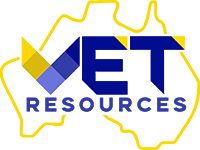The concept of ‘reasonable adjustment in VET’ is important and must be considered. This means that the summative assessment process may be modified so that individual participants are not disadvantaged. For example, a learner with a disability, or with issues relating to language, literacy or numeracy may require some adjustment to the assessment process.
In accordance with the Disability Standards for Education (2005), education providers are under a positive obligation to make changes to reasonably accommodate the needs of a learner with a disability. Reasonable adjustment in VET can be made as required, as long as competence is not compromised.
We make changes to reasonably accommodate the needs of learners to ensure:
-
-
- they have the same learning opportunities as other learners.
- they have the same opportunity to perform and complete assessments as other learners.
-
For example, such a learner could be asked to demonstrate a work process rather than being asked to explain it in writing.
-
-
- Students with carer responsibilities, cultural or religious obligations, English as an additional language, disability etc. can request for reasonable adjustments.
- Please note, academic standards of the unit/course will not be lowered to accommodate the needs of any student, but there is a requirement to be flexible about the way in which it is delivered or assessed.
- The Disability Standards for Education requires institutions to take reasonable steps to enable the student with a disability to participate in education on the same basis as a student without a disability.
- Trainer/Assessor must complete the “Reasonable Adjustment in VET Strategies Matrix” to ensure the explanation and correct strategy have been recorded and implemented.
- Trainer/Assessor must notify the administration/compliance and quality assurance department for any reasonable adjustments made.
- All evidence and supplementary documentation must be submitted with the assessment pack to the administration/compliance and quality assurance department.
-
| Category | Possible Issue | Reasonable Adjustment Strategy (select as applicable) |
| LLND | Speaking Reading Writing Confidence |
Verbal assessment Presentations Demonstration of a skill Use of diagrams Use of supporting documents such as wordlists |
| Non-English Speaking Background | Speaking Reading Writing Cultural background Confidence |
Discuss with the student and supervisor (if applicable) whether language, literacy and numeracy are likely to impact on the assessment process Use methods that do not require a higher level of language or literacy than is required to perform the job role Use short sentences that do not contain large amounts of information Clarify information by rephrasing, confirm understanding Read any printed information to the student Use graphics, pictures and colour coding instead of, or to support, text Offer to write down, or have someone else write, oral responses given by the student Ensure that the time available to complete the assessment, while meeting enterprise requirements, takes account of the student’s needs |
| Indigenous | Knowledge and understanding Flexibility Services Inappropriate training and assessment |
Culturally appropriate training Explore understanding of concepts and practical application through oral assessment Flexible delivery Using group rather than individual assessments Assessment through completion of practical tasks in the field after demonstration of skills and knowledge. |
| Age | Educational background Limited study skills |
Make sure font size is not too small Trainer/Assessor should refer to the student’s experience Ensure that the time available to complete the assessment takes account of the student’s needs Provision of information or course materials in accessible format. Changes in teaching practices, e.g. wearing an FM microphone to enable a student to hear lectures Supply of specialised equipment or services, e.g. a note-taker for a student who cannot write Changes in lecture schedules and arrangements, e.g. relocating classes to an accessible venue Changes to course design, e.g. substituting an assessment task Modifications to physical environment, e.g. installing lever taps, building ramps, installing a lift |
| Educational background | Reading Writing Numeracy Limited study skills and/or learning strategies |
Discuss with the Student previous learning experience Ensure learning and assessment methods meet the student’s individual need |
| Disability | Speaking Reading Writing Numeracy Limited study skills and/or learning strategies |
Identify the issues Create a climate of support Ensure access to support that the student has agreed to Appropriately structure the assessment Provide information or course materials in accessible format, e.g. a text book in braille Changes in teaching practices, e.g. wearing an FM microphone to enable a student to hear lectures Supply of specialised equipment or services, e.g. a note taker for a student who cannot write Changes in lecture schedules and arrangements, e.g. relocating classes to an accessible venue Changes to course design, e.g. substituting an assessment task Modifications to physical environment, e.g. installing lever taps, building ramps, installing a lift |
Disclaimer:
The information presented on the VET Resources blog is for general guidance only. While we strive for accuracy, we cannot guarantee the completeness or timeliness of the information. VET Resources is not responsible for any errors or omissions, or for the results obtained from the use of this information. Always consult a professional for advice tailored to your circumstances.







